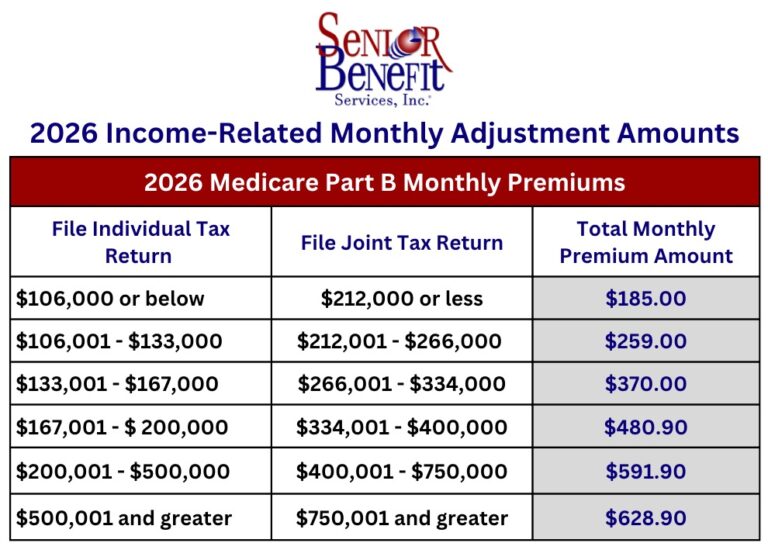What Does Medicare Cost Me In 2026?
Medicare cost 2026? Once again, as in previous years, this is one of the biggest questions that Medicare beneficiaries ask us. Each year your basic costs change due to increases in Part B premium, deductibles, and co-insurance. To see the current Medicare cost for 2026 please refer to the image below. Have questions? Call us […]
Read More 








